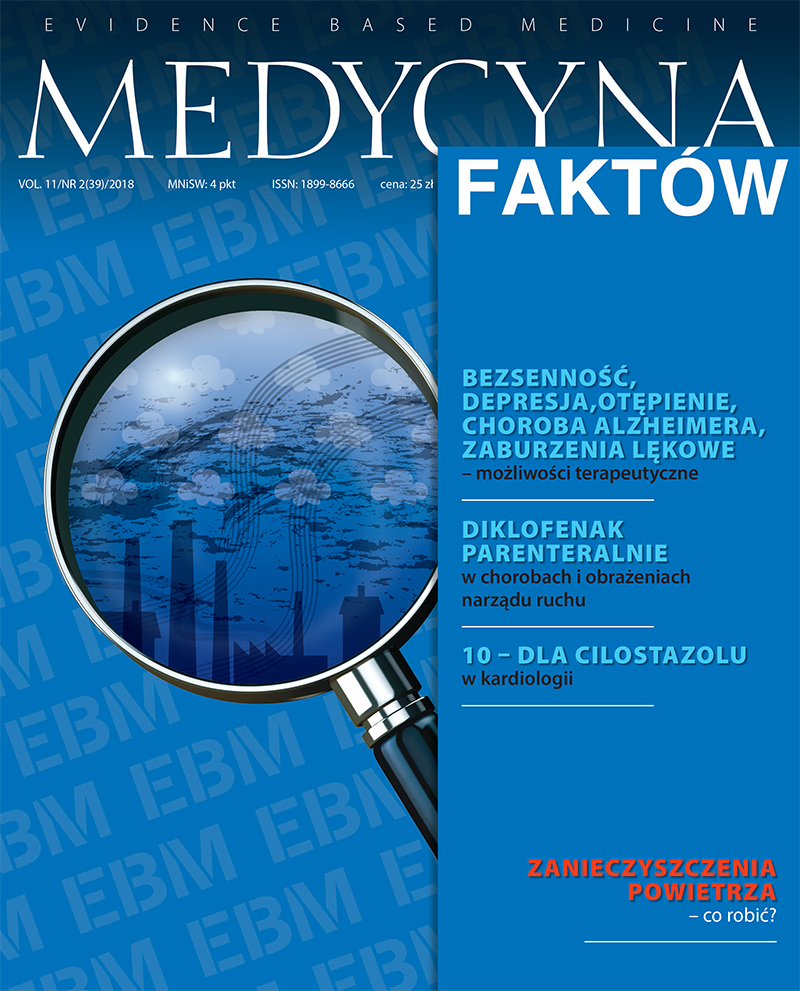High-fructose corn syrup – is there really anything to be afraid of? Review article
Main Article Content
Abstract
Food sugar or sucrose as a sweetener has been known for centuries. The Europeans got to know the sukkar about 327 BC after the conquests of the East by Alexander of Macedon. However, the spread of food sugar in Europe took place in the 19th century. The desire to reduce the costs of food production has motivated manufacturers to look for other sweeteners. Currently, the most popular is high-fructose corn syrup obtained from processed maize, consisting of 45% glucose and 55% fructose (HFCS-55) or 42% fructose and 58% glucose (HFCS-42). When the syrup became popular, questions about its impact on the human body and the occurrence of diseases appeared. This article presents an overview of current literature on this subject, focusing primarily on the effect of high-fructose corn syrup on the occurrence of cardiovascular diseases, cancer, respiratory diseases, type 2 diabetes or obesity. This topic is important because the health awareness of the society is growing, and similar questions will be asked more often in our practices.
Article Details
Copyright © by Medical Education. All rights reserved.
References
2. Schulze M., Manson J., Ludwig D. et al.: Sugar-sweetened beverages, weight gain, and incidence of type 2 diabetes in young and middle-aged women. JAMA 2004; 292: 927-934.
3. Teff K.L., Elliot S. S., Tschop M. et al.: Dietary Fructose Reduces Circulating Insulin and Leptin, Attenuates Postprandial Suppression of Ghrelin, and Increases Triglycerides in Women. J. Clin. Endocrinol. Metab. 2004; 6(89): 2963-2972.
4. Goran M.I., Ulijaszek S.J., Ventura E. E.: High fructose corn syrup and diabetes prevalence: A global perspective. Glob. Public Health 2013; 8: 55-64.
5. Moore M., Davis S., Mann S., Cherrington A.: Acute fructose administration improves oral glucose tolerance in adults with type 2 diabetes. Diabetes Care 2001; 24: 1882-1887.
6. Kopf T., Schaefer H., Troetzmueller M. et al.: Influence of fenofibrate treatment on triacylglycerides, diacylglycerides and fatty acids in fructose fed rats. PLoS One 2014; 9(9): e106849.
7. Nagai Y., Yonemitsu S., Erion D.M. et al.: The role of peroxisome proliferator-activated receptor gamma coactivator-1 beta in the pathogenesis of fructose-induced insulin resistance. Cell Metab. 2009; 9(3): 252-264.
8. Kim M.S., Krawczyk S.A., Doridot L. et al.: ChREBP regulates fructose-induced glucose production independently of insulin signaling. J. Clin. Invest. 2016; 126(11): 4372-4386.
9. Stanowisko Polskiego Towarzystwa Diabetologicznego. Zalecenia kliniczne dotyczące postępowania u chorych na cukrzycę 2017. Diabetol. Prakt. 2017; 3(supl. A).
10. Johnson R.K., Appel L.J., Brands M.; American Heart Association Nutrition Committee of the Council on Nutrition: Dietary sugars intake and cardiovascular health: a scientific statement from the American Heart Association. Circulation 2009; 120(11): 1011-1020.
11. Stanhope K., Medici V., Bremer A. et al.: A dose-response study of consuming high-fructose corn syrup-sweetened beverages on lipid/lipoprotein risk factors for cardiovascular disease in young adults. Am. J. Clin. Nutr. 2015; 101(6): 1144-1154.
12. Te Morenga L., Howatson A., Jones R.M., Mann J.: Dietary sugars and cardiometabolic risk: systematic review and meta-analyses of randomized controlled trials of the effects on blood pressure and lipids. Am. J. Clin. Nutr. 2014; 100(1): 65-79.
13. Lowndes J., Sinnett S., Yu Z., Rippe J.: The effects of fructose-containing sugars on weight, body composition and cardiometabolic risk factors when consumed at up to the 90th percentile population consumption level for fructose. Nutrients 2014; 6(8): 3153-3168.
14. Wolańska D.: Syrop glukozowo-fruktozowy i jego wpływ na zdrowie [online].
15. Nomura K., Yamanouchi T.: The role of fructose-enriched diets in mechanisms of nonalcoholic fatty liver disease. J. Nutr. Biochem. 2012; 23: 203-208.
16. Ma J., Fox C., Jacques P. et al.: Sugar-sweetened beverage, diet soda, and fatty liver disease in the Framingham Heart Study cohorts. J. Hepatol. 2015; 63(2): 462-469.
17. Ouyang X., Cirillo P., Sautin Y. et al.: Fructose consumption as a risk factor for non-alcoholic fatty liver disease. J. Hepatol. 2008; 48(6): 993-999.
18. Cox C., Stanhope K., Schwarz J. et al.: Consumption of fructose- but not glucose-sweetened beverages for 10 weeks increases circulating concentrations of uric acid, retinol binding protein-4, and gamma-glutamyl transferase activity in overweight/obese humans. Nutr. Metab. 2012; 9(1): 68.
19. DeChristopher L., Uribarri J., Tucker K.: Intake of high-fructose corn syrup sweetened soft drinks, fruit. Nutr. Diabet. 2016; 6(3): e199.
20. Gapstur S., Gann P., Lowe W. et al.: Abnormal glucose metabolism and pancreatic cancer mortality. JAMA 2000; 283(19): 2552-2558.
21. Schernhammer E., Hu F., Giovannucci E. et al.: Sugar-sweetened soft drink consumption and risk of pancreatic cancer in two prospective cohorts. Cancer Epidemiol. Biomarkers Prev. 2005; 14(9): 2098-2105.
22. Ozawa T., Maehara N., Kai T. et al.: Dietary fructose-induced hepatocellular carcinoma development manifested in mice lacking apoptosis inhibitor of macrophage (AIM). Genes Cells 2016; 21(12): 1320-1332.
23. Fan X., Liu H., Liu M. et al.: Increased utilization of fructose has a positive effect on the development of breast cancer. PeerJ. 2017; 5: e3804.
24. DeChristopher L.R., Uribarri J., Tucker K. L.: Intakes of apple juice, fruit drinks and soda are associated with prevalent asthma in US children aged 2–9 years. Publ. Health Nutr. 2016; 19(1): 123-130.
25. DeChristopher L., Uribarri J., Tucker K.: Intake of high fructose corn syrup sweetened soft drinks is associated with prevalent chronic bronchitis in U.S. Adults, ages 20-55 y. Nutr. J. 2015; 14: 107.

